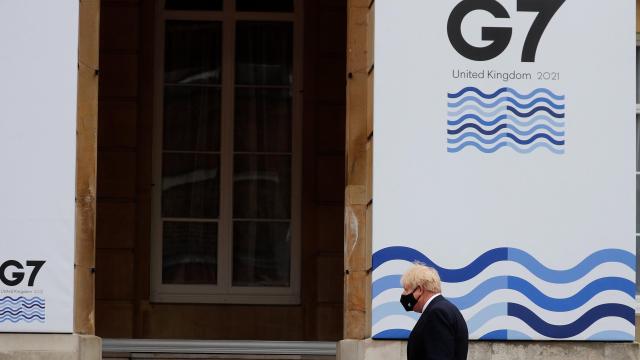The world’s leading economies have made lots of commitments lately about reducing carbon emissions, but their actions tell a different story. A report released Tuesday finds that between January 2020 and March 2021, G7 governments pumped $US190 ($244) billion into supporting coal, oil, and gas, with the U.S. taking the prize for the most money spent on dirty industries.
The report, authored by UK-based international relief agency Tearfund and supported by a host of other groups, reviews all the G7 government funds given to energy industries in a 14-month period. The group includes Canada, France, Germany, Italy, Japan, the UK, and the U.S. Around 80% was given to polluting industries with what the report calls no “green strings” attached. That is, no requirements that the recipients work to reduce emissions or clean up their acts. By comparison, the report finds, governments approved less than $US150 ($192) billion in funding for “clean” forms of energy during that same time period.
“Investing in renewable energy and energy efficiency should be a top priority to decarbonize the G7 economies,” Lucille Dufour, a senior policy advisor at the International Institute for Sustainable Development, one of the groups that supported the report, said in a release. “But it will not pay off as long as G7 countries continue propping up the fossil fuel industry. At the G7 summit, all countries must shift international as well as domestic support away from fossil fuels, towards a just and fossil-free recovery.”
Perhaps unsurprisingly, the U.S. was a real all-star of giving money to dirty industries. According to the report, the country was the top supporter of fossil fuels among all the G7 countries, giving $US72 ($92) billion of the $US100 ($128) billion it spent on energy industries to oil, gas, and coal. This chunk of change includes investments in oil and gas companies, which also received billions in less direct forms of government support from pandemic-related tax breaks and incentives. These companies spent all that extra cash by paying CEOs handsomely through the pandemic while continuing to lay people off. Fun!
Meanwhile, forecasts indicate that the world is set to see one of the biggest year-over-year jumps in carbon dioxide levels. The window to address the worst impacts of the climate crisis is closing quickly, and cutting subsidies for fossil fuels is one of the lowest hanging fruits out there for governments.
Last month, the G7’s environment ministers made a bunch of climate promises at their annual meeting, including a commitment to totally stop financing coal-fired power by the end of this year. The report comes just as finance ministers of the G7 countries are gearing up for a meeting at the end of this week, where they could discuss hammering out details of how to align their checkbooks with their climate goals — a pretty daunting task if this report is any indication. All of these meetings are leading up to the G7’s annual summit later this month, where climate change will reportedly be a top agenda item. The UK, the G7 host country this year, will also be hosting COP26 in Glasgow in November.
It’s important to remember that the world’s most powerful economies are responsible for an outsize portion of the mess that we’re in. World leaders can make climate promises, but hemming and hawing on the details rather than acting decisively will only worsen the crisis. The report notes that these seven countries are some of the most polluting nations in the world; they house only 10% of the world’s population but are responsible for almost 25% of the world’s carbon dioxide emissions. Looking historically, they’re responsible for nearly half of all the carbon pollution that’s ever been emitted. It’s long past due for these countries to start cleaning up the mess they’ve made.
